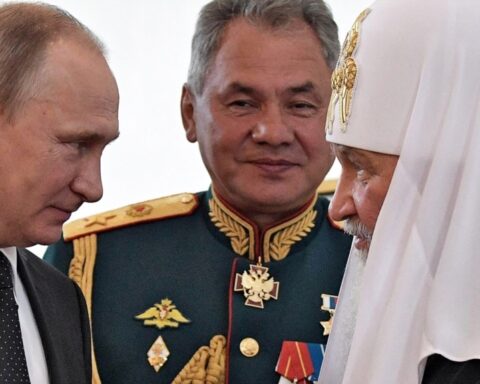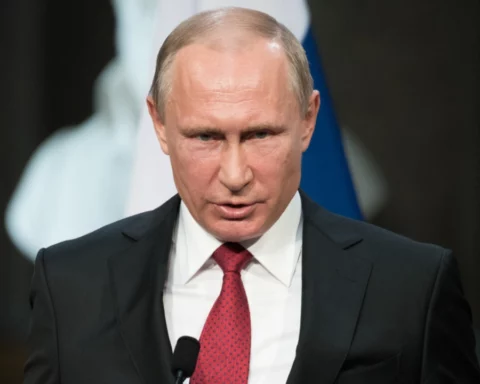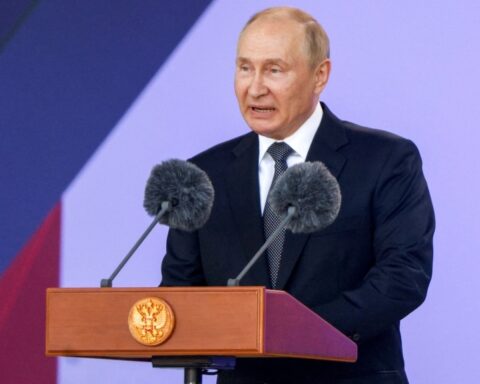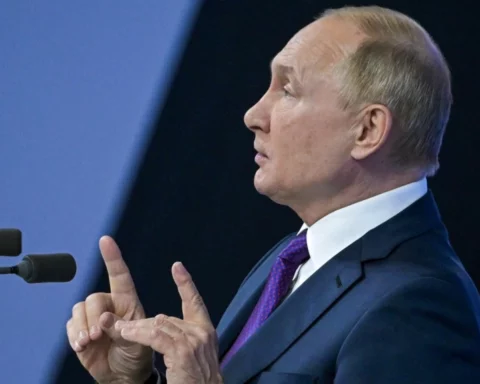Russia’s relations with the West have been at their lowest point since the end of the Cold War after Moscow’s annexation of Ukraine’s Crimea in 2014.
Russia, the successor state of the U.S.S.R., has also been anxious about NATO’s expansion eastward after the collapse of the communist system in Eastern Europe in the late 1980s and early 1990s, considering it a threat to its security.
“The day of June 22 continues to raise indignation and sorrow in the hearts of all generations, causing pain for the destroyed fates of millions of people, because what they went through in those terrible years was literally imprinted in our memories,” Putin said after laying flowers at the Tomb of the Unknown Soldier at the Kremlin wall.
Despite having signed a nonaggression pact with Moscow, Nazi Germany launched a surprise attack against the Soviet Union on June 22, 1941.
Over the next four years, the U.S.S.R., in alliance with the Western powers, managed to repel the Germans and eventually emerge victorious in World War II despite losing 27 million people during the whole conflict.
“Russia supports the idea of reviving a full-fledged partnership with Europe… The whole system of European security has dramatically degraded. Tension is being escalated, the risks of a new arms race are becoming real,” Putin said.
Putin also reiterated his previous statements, saying that his country “will never allow the distortion of the truth” about the World War II.
In recent years, Putin frequently accused European countries of what he called the diminishing of the role of the Soviet Union in the defeat of Nazi Germany and the stressing of atrocities committed by Soviet forces, like the mass murder of Polish officers in the Katyn Forest in 1940 or the mass rapes of German women.
In an article published on June 22 in the German weekly Die Zeit, Putin emphasized that “despite attempts to rewrite the pages of the past that are being made today, the truth is that Soviet soldiers came to Germany not to take revenge on the Germans, but with a noble and great mission of liberation.”
Western historians say the 1939 nonaggression pact between the Soviet Union and Nazi Germany facilitated the outbreak of World War II, which Russian officials vehemently disagree with.
In 2019, the world commemorated the 80th anniversary of the Nazi-Soviet nonaggression agreement known as the Molotov-Ribbentrop Pact whose secret protocol allowed the division of Central and Eastern Europe between Nazi Germany and the Soviet Union.
After the Nazis triggered World War II by invading Poland on September 1, 1939, the Soviets occupied the eastern part of the country, eventually massacring more than 20,000 Polish officers that they had taken prisoner at Katyn.
The Nazis ultimately betrayed the pact with their surprise invasion of the Soviet Union 80 years ago.
German Chancellor Angela Merkel called Putin on June 22 to “express empathy with the unmeasurable woes and suffering brought by the war that was launched by the Nazi regime,” the Kremlin said.
“Both parties underlined the importance of preserving the historic memory of those tragic events” and noted that “overcoming mutual enmity and reconciliation of the Russian and German peoples had key importance for the destinies of postwar Europe,” the Kremlin added.
“It was emphasized that preserving security on the continent now is also possible only through joint efforts.”







